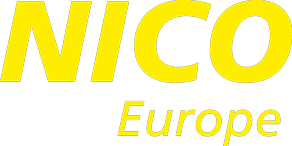Type of combustion products & hazardousness
Contrary to the assertion that toxic substances such as lead or arsenic are used in fireworks products, such substances have not been permitted in pyrotechnics in German products for decades. Fireworks for the European market, especially for the German market, are subject to very strict regulations. Product visions and developments are designed, tested and prepared for approval by NICO itself. The legal conformity of NICO products is processed and ensured in close cooperation with the Federal Institute for Materials Research and Testing.
Bans on substances that are hazardous to the environment and health in fireworks are regulated at EU level and by legislators. Relevant specifications are u. a. REACH and the DIN standard series EN 15947.
Ingredients are subject to strict specifications
The main component of the pyrotechnic mixtures is the “classic” black powder. It consists of potassium nitrate, charcoal (carbon) and sulfur. In the effect sets, coloring salts (e.g. sodium oxalate, strontium
carbonate) used. In addition to these chemicals, many other substances are used, especially natural substances.
It is u. a. around organic fuels and binders (red gum, dextrin, PVB, various resins, etc.), metallic fuels (magnesium, magnesium, aluminum, silicon, titanium, etc.) & a range of oxidizers (potassium perchlorate, ammonium perchlorate, rarely potassium chlorate) .
Product Management and Development
Most of our products are manufactured in the Far East. The factories we contract in China have centuries of experience in producing fireworks for the whole world. Our factories meet European quality and safety requirements. Of course, we attach great importance to fair working and living conditions in the factories that work for us. For this reason, both we and most of our suppliers are members of the BSCI (Business Social Compliance Initiative) and strictly adhere to the relevant BSCI Code of Conduct. The following points are regulated in the BSCI code of conduct:
• Freedom of association and the right to collective bargaining for all workers
• Prohibition of discrimination
• Compliance with legal working hours and public holidays
• Appropriate wages in compliance with statutory minimum wages
• Health and safety at work
• Prohibition of child, forced, compulsory labor and disciplinary measures
• Compliance with environmental and safety standards




